Newest FAQs
The concern with galvanizing any high strength steel is the risk of hydrogen embrittlement. There is plenty of research on galvanizing high strength steels, but conclusions vary on the strength at which hydrogen embrittlement will likely occur when the parts are galvanized. Some research identifies 150 ksi tensile strength as a threshold, but other research... Read more

The turn of the nut method is a very popular and reasonably reliable method for tensioning (F3125) A325 and A490 structural bolts without the need for expensive torque wrenches or tension measuring devices. It is a simple guide that tells the user to rotate the nut a specified amount depending on the bolt length and... Read more
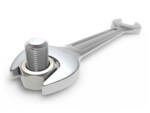
The short answer is no. The A193 specification is specifically designed for fasteners being used in high temperature, high pressure situations. In the ASTM specification, it states that the nuts shall conform to the A194 specification and it does not provide an alternate substitute. Though A563-DH and A194-2H are very similar, they are not interchangeable... Read more
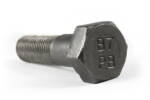
The ASTM F1554 specification does not prohibit or allow metric diameter F1554 anchor bolts. It does not address the subject of metric dimensions at all. So theoretically, if a manufacturer can locate metric steel round bar that meets both the chemical and mechanical requirements of the specification, metric F1554 anchor bolts can be provided. Since... Read more

Timber bolts, also referred to as economy bolts in the Pacific Northwest, are designed with two nubs on the underside of the head which bite into wood and prevent the head from spinning in the timber during nut assembly. The nubs under the head require a wood bearing surface to bite into, making a steel... Read more
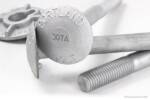
Portland Bolt is a nonstandard bolt manufacturing company that specializes in manufacturing custom bolts and other nonstandard construction fasteners from steel round bar. Our extensive inventory of steel round bar is used solely for the purpose of manufacturing fasteners for our customers. It is our desire to always provide the finished product by using the... Read more
Steel is produced by rolling mills to specifications that cover steel shapes, plates, and bars. Portland Bolt uses steel round bar to manufacture bolts to specifications that cover threaded fasteners. General steel specifications, such as ASTM A36 and A572 or AISI 1045 and 4140 are manufactured to specific chemical and (sometimes) mechanical requirements. Heat analysis... Read more
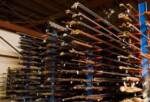
Calling out ASTM F1554 (grade 36, 55, or 105) indicates the grade of material, but the specification itself does not require a specific configuration and does not indicate whether or not the bolt is galvanized. F1554 is a fastener specification which covers steel anchor bolts intended for anchoring structural supports to concrete foundations. The specification provides... Read more
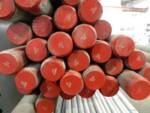
In short, no, the thread length of A193 B7 bolts is not the same as the thread length of A325 bolts. The F3125 Grade A325 specification covers heavy hex structural bolts which have standard fixed thread lengths shown in the table below. The thread lengths can be altered, but A325 bolts with nonstandard thread lengths must... Read more

The reason is similar but different for the drop in strength of grade 2 and grade 5 fasteners. For J429 grade 2 fasteners, the drop is due to the manufacturing process. Small, mass produced cap screws are cold formed by drawing and forming wire. The wire, as it is cold formed, work hardens which increases... Read more
